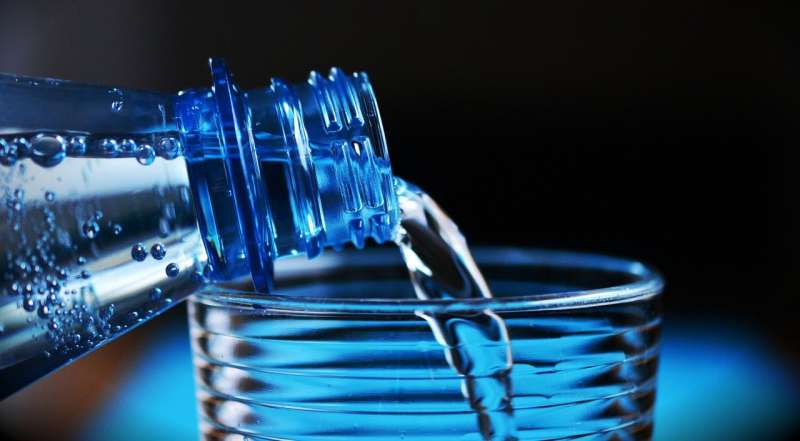
In North Carolina, the Chapel Hill-Carrboro schools is giving students water bottles they can top off throughout the day at bottle-filling stations installed at each of the district’s 20 schools.
The school district notified families and staff that it was fitting water fountains that have been turned off since the start of the COVID-19 pandemic with bottle fillers. The bottles will be given to students this month.
All CHCCS schools now have at least two bottle fillers, with plans to equip all remaining water fountains with bottle fillers over the next two months, said Eric Allen, senior executive director of operations.
The fountains are not being removed or replaced, Allen said. Instead, they’re being fitted with attached bottle fillers.
“By shutting down the ability to drink directly from the fountains we reduce the (possibility) of someone drinking from the fountain after someone else touched it with their lips or saliva,” Allen said.
The decision was made in accordance with guidance from the Centers for Disease Control and Prevention and the N.C. Department of Health and Human Services to avoid using public water fountains, Allen said.
As part of its guidance to gyms and fitness centers in July, DHHS advised, “Discontinue use of drinking directly from water fountains and provide disposable cups or labeled water bottles for individuals when using any water fountains.”
The N.C. Office of State Human Resources also recommended disabling water fountains that lack touch-less features.
Last month, UNC-Chapel Hill caught flak for deciding to bring back a first day of class tradition and allowing students to line up to take a sip from the Old Well water fountain, which is said to bring students good luck.
Images of students waiting to get a drink from the fountain—which didn’t happen last year due to the pandemic—drew criticism on social media from people who said resuming the practice amid COVID-19 cases and hospitalizations was a bad idea.
Risk of covid spread through water fountains
But what is the actual risk of contracting COVID-19 from a public water fountain?
Rachel Graham, an assistant professor of epidemiology at the UNC Gillings School of Global Public Health, said the prevailing evidence doesn’t indicate a high “direct risk” of contracting the virus from a water fountain.
“That being said, it’s not completely absent” she said.
Graham pointed to a study published by Cambridge University Press in March, in which researchers collected samples from playground equipment and water fountains—specifically, the dispensing button and the faucet on fountains—across six cities in central Israel that each had a “high overall prevalence of disease.” Of the 25 samples collected from water fountains, one tested positive for COVID-19.
That doesn’t mean children can drink from water fountains worry-free, Graham said. For one, because kids under 12 are still ineligible to receive a COVID-19 vaccine.
If those kids become infected, they’re susceptible to higher viral loads “in their mucosal surfaces, so in their noses, perhaps in their mouths as well,” Graham said. “If they then come in contact with a water fountain, with especially little kids, who tend to stick their mouths on water fountains, that becomes a potential increased vector transmission state.”
Spread of other diseases
It’s also important to consider the spread of other infectious diseases Graham said.
COVID-19 may not be as transmissible through surfaces like a water fountain, but other infectious diseases like influenza and the common cold are, she said. And getting sick with the flu or a cold could make a child more susceptible to a COVID-19 infection too.
That’s because “a healthy immune system is the primary barrier against any kind of infection, so if the immune system is already compromised, your chances of getting sick with other things increases as well,” Graham said.
At the end of the day, it’s better to be cautious, Graham said.
Source: Read Full Article